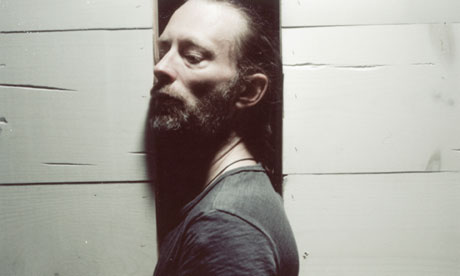Streaming music payments: how much do artists really receive?
Stats from Zoë Keating show how musician's 0.4 cents per Spotify stream compare to payments from iTunes Match, Amazon Cloud Drive and Xbox Music
 Zoë Keating shared data on her digital income
Zoë Keating shared data on her digital income
Musician Zoë Keating earned $808 from 201,412 Spotify streams of tracks from two of her older releases in the first half of 2013, according to figures published by the cellist as a Google Doc.
The spreadsheet was Keating's latest attempt to shed more light on the issue of streaming music payouts to artists, as part of the wider debate on whether Spotify and its rivals can generate a sustainable income for musicians.
"This is streaming revenue reported from January to June 2013 for my 2 old recordings distributed by CDBaby," explained Keating in the notes section on her spreadsheet.
The 201,412 Spotify plays of songs from her One Cello x 16 EP and One Cello x 16: Natoma album earned Keating 0.4 cents per stream (just under 0.3p in UK terms), after digital distributor CDBaby's 9% cut is factored in.
How do other streaming music services compare to Keating's Spotify payouts? She earned $54.40 from 7,908 plays on US service Rhapsody at 0.69 cents per stream, although that included mechanical royalties payments for writing the songs as well as performing them.
Keating earned a mere $13.38 from 387 plays of these songs on Microsoft's Xbox Music service, although the per-stream rate there was a startling 3.5 cents.
The spreadsheet includes payments from Apple's iTunes Match and Amazon's Cloud Drive – 0.2 and 0.05 cents per stream respectively, although as services that let people stream music they already own from cloud lockers, these represent different licensing deals to Spotify, Rhapsody and Xbox Music.
Keating's EP and album earned $1,617 from SoundExchange – the US company that collects royalties from services including Pandora, iHeartRadio and Sirius XM – and $930.26 from YouTube, although data on the number of plays in these cases is not available.
Her total streaming payments for these two releases were $3,454.28 in the first half of 2013. Keating's last album, 2010's Into the Trees, is available to buy, but not to stream.
Keating has a history of releasing this kind of raw data, as the debate about how much artists get paid from streams as opposed to sales of their music has grown in volume.
"If we are going to discuss the ideal structure of the new music industry, we need to know how recording artists make a living today or we're just spouting hyperbole," she wrote in a previous Google Doc, released to share details of her digital earnings between October 2011 and March 2012.
"So, in the interest of evolving the discussion, I am making myself into a data point. I encourage other artists, if they are able, to do the same."
That first Google Doc revealed that nearly 97% of Keating's income came from sales of her music on iTunes, Amazon and her own Bandcamp website. During that six-month period, Keating earned just under $47k from iTunes, $25k from Bandcamp and nearly $11.2k from Amazon, but less than $300 from Spotify.
 Thom Yorke criticised Spotify after removing Atoms for Peace's albums Her latest spreadsheet is likely to become a discussion point in the streaming royalties debate, which was recently reignited when Atoms for Peace pulled their albums from Spotify and other streaming services, with band members Thom Yorke and Nigel Godrich criticising these companies for business models that they claimed were weighted against emerging artists.
Thom Yorke criticised Spotify after removing Atoms for Peace's albums Her latest spreadsheet is likely to become a discussion point in the streaming royalties debate, which was recently reignited when Atoms for Peace pulled their albums from Spotify and other streaming services, with band members Thom Yorke and Nigel Godrich criticising these companies for business models that they claimed were weighted against emerging artists.
Keating is a different kind of artist: established, but "non-mainstream" (in her own words), and one of the most prominent examples of a do-it-yourself artist in terms of releasing her music without a label.
For her part, she has praised the potential of streaming services, while offering constructive criticism about how they could and should work better for musicians.
"I think Spotify is awesome as a listening platform. In my opinion artists should view it as a discovery service rather than a source of income," she wrote in that first Google Doc.
Stats from Zoë Keating show how musician's 0.4 cents per Spotify stream compare to payments from iTunes Match, Amazon Cloud Drive and Xbox Music
- theguardian.com, Monday 19 August 2013 06.03 EDT
- Jump to comments (27)
 Zoë Keating shared data on her digital income
Zoë Keating shared data on her digital incomeMusician Zoë Keating earned $808 from 201,412 Spotify streams of tracks from two of her older releases in the first half of 2013, according to figures published by the cellist as a Google Doc.
The spreadsheet was Keating's latest attempt to shed more light on the issue of streaming music payouts to artists, as part of the wider debate on whether Spotify and its rivals can generate a sustainable income for musicians.
"This is streaming revenue reported from January to June 2013 for my 2 old recordings distributed by CDBaby," explained Keating in the notes section on her spreadsheet.
The 201,412 Spotify plays of songs from her One Cello x 16 EP and One Cello x 16: Natoma album earned Keating 0.4 cents per stream (just under 0.3p in UK terms), after digital distributor CDBaby's 9% cut is factored in.
How do other streaming music services compare to Keating's Spotify payouts? She earned $54.40 from 7,908 plays on US service Rhapsody at 0.69 cents per stream, although that included mechanical royalties payments for writing the songs as well as performing them.
Keating earned a mere $13.38 from 387 plays of these songs on Microsoft's Xbox Music service, although the per-stream rate there was a startling 3.5 cents.
The spreadsheet includes payments from Apple's iTunes Match and Amazon's Cloud Drive – 0.2 and 0.05 cents per stream respectively, although as services that let people stream music they already own from cloud lockers, these represent different licensing deals to Spotify, Rhapsody and Xbox Music.
Keating's EP and album earned $1,617 from SoundExchange – the US company that collects royalties from services including Pandora, iHeartRadio and Sirius XM – and $930.26 from YouTube, although data on the number of plays in these cases is not available.
Her total streaming payments for these two releases were $3,454.28 in the first half of 2013. Keating's last album, 2010's Into the Trees, is available to buy, but not to stream.
Keating has a history of releasing this kind of raw data, as the debate about how much artists get paid from streams as opposed to sales of their music has grown in volume.
"If we are going to discuss the ideal structure of the new music industry, we need to know how recording artists make a living today or we're just spouting hyperbole," she wrote in a previous Google Doc, released to share details of her digital earnings between October 2011 and March 2012.
"So, in the interest of evolving the discussion, I am making myself into a data point. I encourage other artists, if they are able, to do the same."
That first Google Doc revealed that nearly 97% of Keating's income came from sales of her music on iTunes, Amazon and her own Bandcamp website. During that six-month period, Keating earned just under $47k from iTunes, $25k from Bandcamp and nearly $11.2k from Amazon, but less than $300 from Spotify.
 Thom Yorke criticised Spotify after removing Atoms for Peace's albums Her latest spreadsheet is likely to become a discussion point in the streaming royalties debate, which was recently reignited when Atoms for Peace pulled their albums from Spotify and other streaming services, with band members Thom Yorke and Nigel Godrich criticising these companies for business models that they claimed were weighted against emerging artists.
Thom Yorke criticised Spotify after removing Atoms for Peace's albums Her latest spreadsheet is likely to become a discussion point in the streaming royalties debate, which was recently reignited when Atoms for Peace pulled their albums from Spotify and other streaming services, with band members Thom Yorke and Nigel Godrich criticising these companies for business models that they claimed were weighted against emerging artists.Keating is a different kind of artist: established, but "non-mainstream" (in her own words), and one of the most prominent examples of a do-it-yourself artist in terms of releasing her music without a label.
For her part, she has praised the potential of streaming services, while offering constructive criticism about how they could and should work better for musicians.
"I think Spotify is awesome as a listening platform. In my opinion artists should view it as a discovery service rather than a source of income," she wrote in that first Google Doc.
"The income of a non-mainstream artist like me is a patchwork quilt and streaming is currently one tiny square in that quilt. Streaming is not yet a replacement for digital sales, and to conflate the two is a mistake. I do not see streaming as a threat to my income, just like I've never regarded file-sharing as a threat but as a convenient way to hear music.
If people really like my music, I still believe they'll support it somewhere, somehow. Casual listeners won't, but they never did anyway. I don't buy ALL the music I listen to either, I never did, so why should I expect every single listener to make a purchase? I think that a subset of my listeners pay for my music, and that is a-ok because...and this is the key.....there are few middlemen between us."
Later, she suggested in a blog post that digital music services should share more data with musicians to help them make money in other ways, such as touring:If people really like my music, I still believe they'll support it somewhere, somehow. Casual listeners won't, but they never did anyway. I don't buy ALL the music I listen to either, I never did, so why should I expect every single listener to make a purchase? I think that a subset of my listeners pay for my music, and that is a-ok because...and this is the key.....there are few middlemen between us."
"I want my data and in 2012 I see absolutely no reason why I shouldn't own it. It seems like everyone has it, and exploits it…everyone but the creators providing the content that services are built on.
I wish I could make this demand: stream my music, but in exchange give me my listener data. But the law doesn't give me that power. The law only demands I be paid in money, which at this point in my career is not as valuable as information. I'd rather be paid in data."
On a related note, earlier this year, Keating became one of the most high-profile artists to work with music startup Songkick's Detour service, which gets fans to crowdfund concerts by their favourite musicians, pledging to buy tickets until enough people are signed up to make the gig worthwhile.
I wish I could make this demand: stream my music, but in exchange give me my listener data. But the law doesn't give me that power. The law only demands I be paid in money, which at this point in my career is not as valuable as information. I'd rather be paid in data."